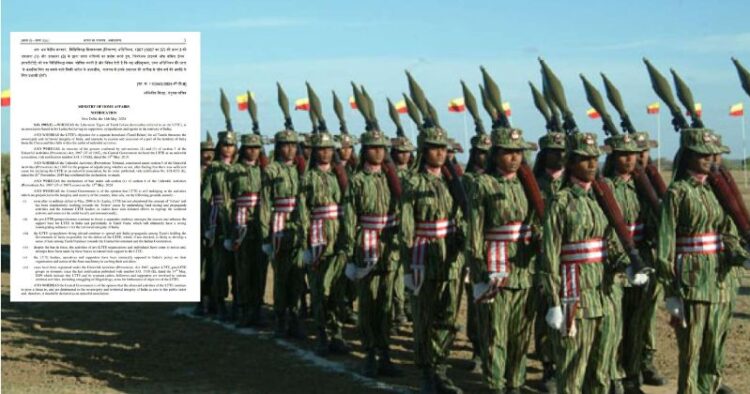The Union Government, under the leadership of Prime Minister Narendra Modi, has extended the ban on the Liberation Tigers of Tamil Eelam (LTTE) for an additional five years, effective from May 14, 2024. This decision, made under the Unlawful Activities (Prevention) Act, 1967, reinforces the government’s commitment to maintaining national integrity and security.
The decision to extend the ban was taken by the Union Home Ministry, invoking sub-sections (1) and (3) of section 3 of the aforementioned act. The ministry, in a notification, expressed concerns that the activities of the LTTE continue to pose a threat to the integrity and security of the country. Despite suffering a military defeat in Sri Lanka back in May 2009, the LTTE has not abandoned its pursuit of an independent Tamil homeland, known as ‘Eelam.’
The organisation has been clandestinely engaging in fundraising and propaganda activities to further their cause. Furthermore, remnants of LTTE leadership and cadres have initiated efforts to regroup scattered activists and revive the outfit both within the country and on an international scale. The notification highlights that pro-LTTE groups and elements persist in fostering separatist tendencies among the masses, particularly in Tamil Nadu. This poses a significant risk to the territorial integrity of India, potentially leading to disintegration.
The Union Government also cited several other reasons that warranted the extension of the ban on LTTE for an additional five years. The notification further mentions that pro-LTTE sympathisers residing abroad continue to spread anti-India propaganda among the Tamil community, holding the government of India accountable for the LTTE’s defeat. If left unchecked, this propaganda has the potential to breed animosity among the Tamil populace towards the central government and the Indian Constitution.
In a recent notification, the central government expressed concerns over the persistence of pro-LTTE (Liberation Tigers of Tamil Eelam) activities, despite the ban in force. The government has noticed attempts by these forces to extend support to the LTTE, with leaders, operatives, and supporters expressing hostility towards India’s policies and actions against their organisation. The notification highlights that multiple cases have been registered under the Unlawful Activities (Prevention) Act, 1967, against the LTTE, pro-LTTE groups, and related elements since the last notification published on May 14, 2019.
These cases indicate the involvement of the LTTE and its remaining cadres, followers, and supporters in various criminal activities. These activities include the smuggling of illegal drugs and arms, all aimed at furthering the objectives of the LTTE. Considering these developments, the central government firmly believes that the aforementioned activities of the LTTE continue to pose a significant threat to India’s sovereignty, territorial integrity, and public order. As a result, the government has declared the LTTE an unlawful association under the provisions of the Unlawful Activities (Prevention) Act, 1967. This decision reflects the government’s commitment to safeguarding the nation’s interests and maintaining law and order.



















Comments